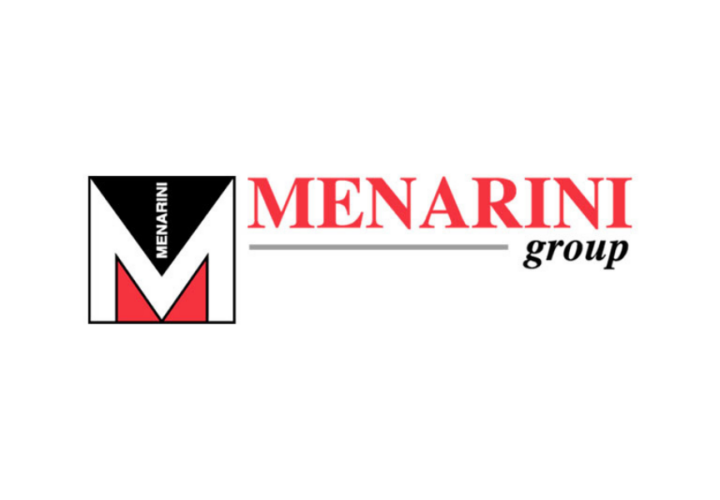
Subgroup analysis of patients with no prior chemotherapy in EMERALD: A phase 3 trial evaluating elacestrant, an investigational oral selective estrogen receptor degrader (SERD), vs. investigator’s choice of endocrine monotherapy for ER+/HER2- advanced/metastatic breast cancer (mBC)
Florence, Italy and Boston, Mass., June 6, 2022 – The Menarini Group (“Menarini”) and Radius Health, Inc. (“Radius”) (NASDAQ: RDUS) (collectively, the “Companies”) today announced the presentation at the 2022 American Society of Clinical Oncology (ASCO) Annual Meeting of data from the EMERALD phase 3 clinical trial (NCT03778931). In a non-pre-specified subgroup analysis of patients with ER+/HER2− metastatic breast cancer (mBC) without prior chemotherapy in the metastatic setting, elacestrant significantly prolonged progression-free survival (PFS) compared to standard of care (SOC) endocrine therapy.
- EMERALD study met both of its pre-specified primary end points of progressionfree survival (PFS) in the overall population and in patients with ESR1 mutation (mESR1).1
- 77.8% (n=371) out of the 477 patients enrolled in the trial had not received prior chemotherapy in the metastatic setting for ER+/HER2−mBC. Among these patients, elacestrant showed the following results compared to SOC:
- 31% reduction in the risk of progression or death in all patients (HR=0.681 [95% CI: 0.520 – 0.891]; P=0.00388) and prolonged median PFS (3.68 vs 1.97 months).
- 46% reduction in the risk of progression or death in patients with mESR1(HR=0.535 [95% CI: 0.356 – 0.799]; P=0.00235) and prolonged median PFS (5.32 vs 1.91 months).
- At 6 months, PFS rate with elacestrant was 38.18% vs. 23.47% with SOC in the overall population, and 43.79% vs. 23.83% in the ESR1 mutationpopulation.
- PFS rate at 12 months with elacestrant was 27.12% vs. 12.19% with SOC in the overall population, and 31.48% vs. 12.36% in the ESR1 mutation population.
- In exploratory subgroup analyses, elacestrant significantly reduced the risk of progression or death and prolonged median PFS vs fulvestrant in all patients without prior chemotherapy (HR=0.636 [95% CI: 0.465-0.868]; median PFS 3.68 vs 1.97 months; P=0.0032), and in patients with mESR1 without prior chemotherapy (HR=0.487 (95% CI: 0.310-0.761; median PFS 5.32 vs 1.91 months; P=0.0015).
- Elacestrant had a manageable safety profile in patients without prior chemotherapy consistent with the overall population.1
Dr. Virginia Kaklamani, breast medical oncologist and professor of medicine, UT Health San Antonio, MD Anderson Cancer Center, commented, “Elacestrant is a potential exciting new endocrine therapy after progression on a CDK4/6 inhibitor in women with ER+ metastatic breast cancer. The EMERALD trial showed that elacestrant is active even in patients whose tumors harbor an ESR1 mutation. This subset análisis additionally showed that patients who have not previously been treated with chemotherapy in the metastatic setting had longer progression free survival up to 5.32 months.”
Menarini plans to pursue combination studies and study the potential of elacestrant to be effective in addressing the highest unmet needs for ER+/HER2-patients.
Poster Presentation: 477
Abstract Title: Subgroup analysis of patients with no prior chemotherapy in EMERALD: A phase 3 trial evaluating elacestrant, an oral selective estrogen receptor degrader (SERD), vs investigator’s choice of endocrine monotherapy for ER+/HER2- advanced/metastatic breast cancer (mBC)
Abstract Number: 1100
Poster Session: Breast Cancer – Metastatic
About Elacestrant (RAD1901) and EMERALD Phase 3 Study
Elacestrant is an investigational selective estrogen receptor degrader (SERD), outlicensed to Menarini Group, which is being evaluated for potential use as a once daily oral treatment in patients with ER+/ HER2- advanced breast cancer. In 2018, elacestrant received fast track designation from the FDA. Preclinical studies completed prior to EMERALD indicate that the compound has the potential for use as a single agent or in combination with other therapies for the treatment of breast cancer. The EMERALD Phase 3 trial is a randomized, open label, active-controlled study evaluating elacestrant as second- or third-line monotherapy in ER+/HER2- advanced/metastatic breast cancer patients. The study enrolled 477 patients who have received prior treatment with one or two lines of endocrine therapy, including a CDK 4/6 inhibitor. Patients in the study were randomized to receive either elacestrant or the investigator’s choice of an approved hormonal agent. The primary endpoint of the study was progression-free survival (PFS) in the overall patient population and in patients with estrogen receptor 1 gene (ESR1) mutations. Secondary endpoints included evaluation of overall survival (OS), objective response rate (ORR), and duration of response (DOR).
References
- Bidard FC, Kaklamani VG, Neven P, et al. Elacestrant (oral selective estrogen receptor degrader) Versus Standard Endocrine Therapy for Estrogen Receptor– Positive, Human Epidermal Growth Factor Receptor 2–Negative Advanced Breast Cancer: Results From the Randomized Phase III EMERALD Trial. J Clin Oncol. 2022 May 18:JCO2200338. doi.org: 10.1200/JCO.22.00338. Epub ahead of print.
About Menarini
The Menarini Group is a leading international pharmaceutical and diagnostics company, with a turnover of over $4 billion and over 17,000 employees. Menarini is focused on therapeutic areas with high unmet needs with products for cardiology, oncology, pneumology, gastroenterology, infectious diseases, diabetology, inflammation, and analgesia. With 18 production sites and 9 Research and Development centers, Menarini’s products are available in 140 countries worldwide. For further information, please visit www.menarini.com.
About Radius
Radius is a global biopharmaceutical company focused on addressing unmet medical needs in the areas of bone health, orphan diseases, and oncology. Radius’ lead product, TYMLOS® (abaloparatide) injection, was approved by the U.S. Food and Drug Administration for the treatment of postmenopausal women with osteoporosis at high risk for fracture. The Radius clinical pipeline includes investigational abaloparatide injection for potential use in the treatment of men with osteoporosis; an investigational abaloparatide transdermal system for potential use in the treatment of postmenopausal women with osteoporosis; the investigational drug, elacestrant (RAD1901), for potential use in the treatment of hormonereceptor positive breast cancer out-licensed to Menarini Group; and the investigational drug RAD011, a synthetic cannabidiol oral solution with potential utilization in multiple neuro-endocrine, neurodevelopmental, or neuropsychiatric disease areas, initially targeting Prader-Willi syndrome, Angelman syndrome, and infantile spasms.
Descargar nota de prensa


